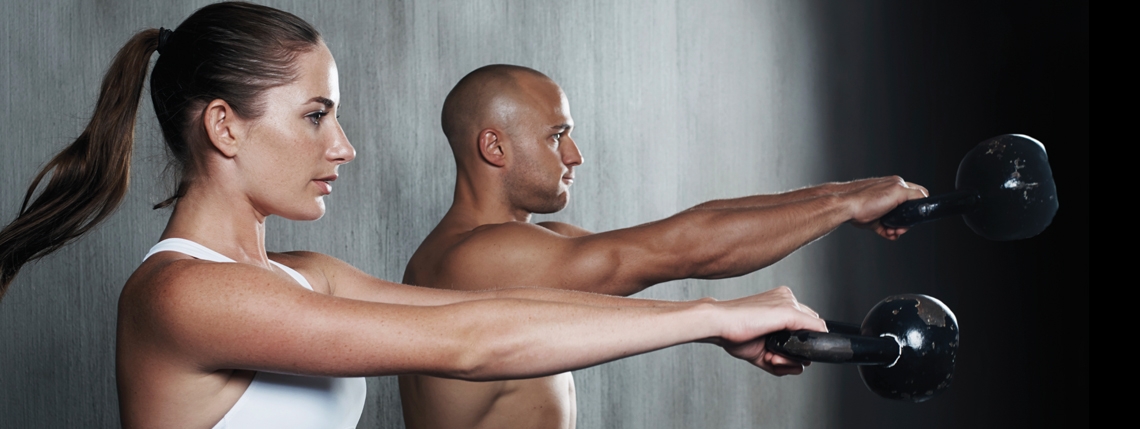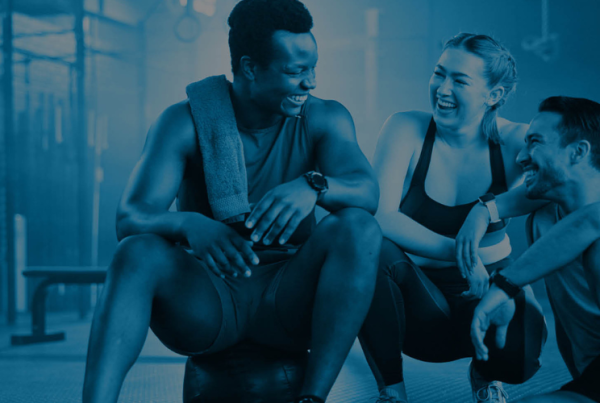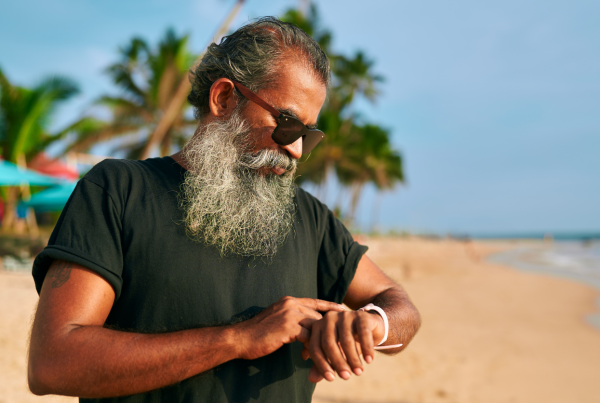This article was originally published on the following platform and has been reproduced with author permission https://medium.com/@Antonia_Lee/of-sport-sex-and-gender-23b455e44b61
“Serious sport has nothing to do with fair play. It is bound up with hatred, jealousy, boastfulness, disregard of all rules, and sadistic pleasure in witnessing violence: in other words, it is war minus the shooting.”
(George Orwell, The Sporting Spirit, 1945)
I’ve spent more than 40 years working in elite sport; whether coaching athletes directly or in sports science and sports medicine support. Sport has been good to me; I’ve travelled the world and met my sporting heroes, two of whom became friends, although sadly one has now passed away. Elite sport can also be a highly political, corrupt and nasty place where you have to tread carefully to maintain your personal and professional integrity.
On very slow jogs, or more usually in a quiet weights room where I play with an Olympic bar — I say ‘play’ since the strength and power I’d developed in spades through intensive training in my prime has now long gone – I always reflect upon something I might have read or heard recently. I believe I’m what the sociologist, Margaret Archer, calls a meta-reflexive.
It’s been very hard not to think about sport, sex and gender in the last few weeks. My reflections on the topic began quite by chance while listening to an episode of Woman’s Hour on BBC Radio 41. It was here that I heard there really was no problem with someone who had been born a man yet who now identifies as a woman competing in women’s sport. There was no evidence, said the young researcher, to support the commonly held belief that such an individual would have any physical advantage in going from being a man and choosing now to compete as a woman. Furthermore, if sport simply got rid of men’s and women’s categories altogether, she believed that women would raise their game to compete on an equal footing since ‘women would then try harder’.
Putting that naïve, rather insulting notion and the extensive, published scientific literature in exercise science regarding sex differences to one side2, to coach youngsters is to see similarly sized girls and boys often perform equally well until puberty, after which the sporting performances of the boys shoots upwards. Indeed, it doesn’t matter which athletic events you look at, the difference between the best men’s and the best women’s performances is around 10%, with the men’s being superior.
I wondered whether you also needed to be of a certain age to appreciate sex differences in sport. The entire philosophy of the doping programme of the former East Germany, as far as the women were concerned and as explained to me at a conference by Dr Werner Franke, was to make the women as much like men as possible, while ensuring they passed the (rudimentary) sex tests and weren’t caught doping. That the women’s 400m world record dates back to 1985 and is held by the East German Marita Koch and is still around two seconds faster than the times the best women run today, perhaps says it all. Even then, at 47.6 seconds, this is still what a good male club runner will run the distance.
While it is a different, yet related, matter, the intersex athlete, Caster Semenya, is currently able to win comfortably any elite women’s 800m race she enters, choosing not only how to win each race but by how much. If you’ve coached female 800m runners as I have, you can only watch and wonder, while trying hard to maintain the motivation of athletes who find the thought of forever racing for minor places reason enough to give up athletics completely.
On medication to suppress her high levels of endogenous testosterone, Semenya typically runs a couple of seconds outside 2 minutes and is beatable. When this ruling was overturned recently and the medication discontinued, she was back to running 1 minute 55 seconds comfortably.
It is clear that there are massive holes in the current research; holes that the Radio 4 transgender expert could not possibly be aware of unless they had real experience of elite sport; including its dark side. The recent paper that inexperienced and non-scientific academics seem to rely upon when it comes to the relevance of testosterone in elite athletic events — the 2017 Bermon and Garnier study — is methodologically flawed; so much so that experts in the field have asked for it to be retracted3.
Furthermore, and nothing to do with the flawed methodology — and you really did have to be immersed in elite sport to know this — when athletes take performance-enhancing drugs (PEDs), their natural production of testosterone is suppressed. To arrive at conclusions that rely upon testosterone values or other markers from blood samples from athletes whose PED history is unknown, is poor science. In a paper (Ulrich et al, 2017) that the World Anti-Doping Agency and the International Association of Athletics Federations prevented from being published for six years, anonymous survey data from more than 2,000 athletes revealed that the likely prevalence of past-year doping at the 2011 Athletics World Championships was 43.6%4. Both the Bermon and Garnier study and the doping prevalence study of Ulrich et al used data collected from the same championships in arriving at their respective findings. I remain amazed that this seems to have been largely ignored: it’s quite a confounding factor after all.
This is where my reflection on the topic had just about ended. Then the Navratilova-McKinnon story appeared in the news. For a number of years I attended Wimbledon without fail. I’d watched Navratilova play several times. In terms of movement quality, strength, power, agility, skill and shot selection, there were two female tennis players at the time I admired greatly: Martina Navratilova and Steffi Graf. Both of them were exceptional athletes.
I had absolutely no idea who Rachel McKinnon was in sporting terms, although I could see that she said she was a world champion. Like many people I suspect, I at first imagined she’d participated in a World Championship like those I’ve attended in either a coaching or sports medicine role. An Olympic Games is often called the biggest show on Earth and for good reason. In my 20s, Moscow 1980 blew my mind and my faded mascot ‘Misha’ cap is a treasured possession. The closing ceremony is on YouTube and it still brings a tear to my eye. Thousands of competitors, thousands of support staff, tens of thousands of spectators, packed stands… any Olympic Games is a monster of an event. Depending upon the sport, a World Championships can be quite monstrous, too. Further down the pecking order are competitions such as the Commonwealth Games; often called ‘the friendly games’ since standards are generally not so high.
The competition McKinnon competed in was the UCI Masters World Track Cycling Championships 2018. The competition results exist online, as does the recorded live feed5. It would appear that there were only eight other competitors in the race with McKinnon. In fact, it appears to have been so poorly contested, the organisers merged the F35-39 and F40-44 categories. Indeed, across all the female races and age groups at this event, there are less than 100 competitors in total in the official entry list. There are almost no spectators to be seen.
From personal experience, I know this is not unusual in age-group competitions in many sports, since unlike a high profile World Championships, with all the nationalistic, my-country-is-better-than-yours, multi-million dollar investment and medal table nonsense, age-group competitors will be self-financed and responsible for their own travel and accommodation. In other words, participation will not normally be funded or supported by the sport governing body or national sporting federation. What this usually means is that the competition tends to self-select those competitors living in or close to the host country. This is not to be dismissive of the training or indeed the competitive spirit and endeavours of the participants in each age group. McKinnon is an age-group world champion. Yet this admirable accomplishment should not be regarded by the non-sporting individual as a title equivalent to that of an athlete who has become a non-age-grouped male or female world champion in a given sport, event or discipline in a globally competitive event against all-comers.
McKinnon has played by the current track cycling rules and won legally, even if perhaps by a simple act of forgetfulness; the ‘age-group’ component of her World Championship is usually omitted in any biography or by-line. I’m sure, now that this has been highlighted, this omission will be corrected. McKinnon has helpfully brought the transgender debate regarding sporting participation to a wider, general audience and it is not going to go away. It desperately needs rational debate and good science. However, I’m struggling to see how McKinnon’s continued attacks on Navratilova ─ an incredible, truly world-class athlete and role model ─ help transgender sport. Acknowledging my bias, Navratilova has been calm, fair and poised in her response and demeanour throughout. McKinnon, less so.
Finally, and perhaps most importantly, there are physiological issues other than just endogenous testosterone to be discussed and researched; in particular, what about the long-term health (mental and physical) of transitioning athletes, whether male to female or female to male? Would-be researchers might consider reviewing the doping protocols, medical history, and current health of the surviving athletes of the former East Germany6.
Dr Antonia Lee is an elite coach, with degrees in science and sports medicine.
This article was originally published on the following platform and has been reproduced with author permission https://medium.com/@Antonia_Lee/of-sport-sex-and-gender-23b455e44b61
References
- bbc.co.uk/sounds/play/p06tmhr3, accessed 8 January 2019.
- https://fairplayforwomen.com/sports/, accessed 8 January 2019.
- http://leastthing.blogspot.com/2018/07/a-call-for-bermon-and-garnier-2017-to.html, accessed 8 January, 2019.
- Ulrich, R. et al (2017) Doping in two elite athletics competitions assessed by randomised-response surveys. Sports Med; DOI 10.1007/s40279–017–0765–4.
- https://mastersworldsla.com/about, accessed 8 January, 2019.
- bbc.com/sport/athletics/22269445, accessed 8 January 2019.







